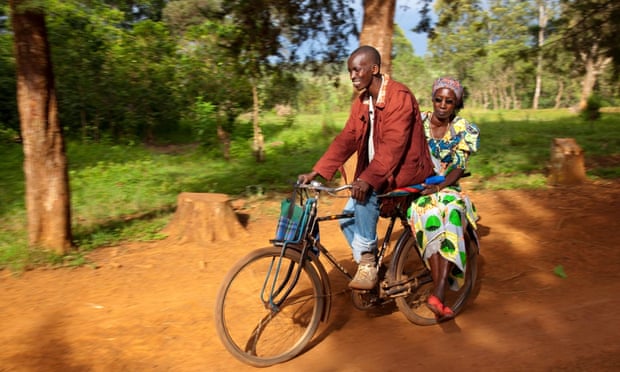General
Source: The Guardian
Advocacy group Equality Now says that despite progress many discriminatory laws remain 20 years after a call to repeal them – and more are being passed.

In the Democratic Republic of the Congo, women must obey their husbands. In Cuba, girls can be married at 14, while boys have to be 16. In Japan, women are required to wait six months after a divorce before they can remarry, while men are not under such obligation. In Russia, women are not allowed to work in jobs considered too physical. And in Malta, the law allows a man to escape prosecution for abducting a woman if he later marries her.
Twenty years after a landmark global agreement on gender equality that included a call for governments to repeal discriminatory laws, many remain on the statute books and more have been passed, according to a report by the advocacy group Equality Now.
Using a sample of more than 40 countries, the organisation has conducted five-yearly reviews of progress against the commitment, which was made in 1995 at the fourth world conference on women, held in Beijing.
The specific article states that governments must "revoke any remaining laws that discriminate on the basis of sex".
In its report, Words and Deeds - holding governments accountable in the Beijing review process, published on Saturday, Equality Now said more than half the discriminatory laws related to marital, personal and economic status, and violence against women – all of which it had highlighted in previous years – had been repealed, or partially repealed.
However, it said many remained in force and that new discriminatory laws had been passed since its last review in 2010. The latter include a law in Burundi stating that men are the head of the family, while in Indonesia a man can now have more than one wife. Despite amendments to the law in India in 2013, a man who rapes his wife will not face prosecution if she is over 15.
"The global trend is there has been some progress, which is good, but it is often two steps forward, one back," said Jacqui Hunt, London director of Equality Now. "We've seen new laws, and governments not taking the opportunity, when reviewing laws, to change them. We have seen some progress, but there's still a long way to go."
Among the countries that have taken positive steps over the past five years are: Argentina, which has removed the possibility of a perpetrator of sexual abuse making a settlement with the victim to escape prosecution; Bolivia, which now allows women to work at night; and Iraq, which now allows women to obtain a passport without their husband's permission.
Last year, the president of Mozambique rejected proposed changes to the country's penal code that would have undermined women's rights, and ran counter to the country's constitution. These included a provision that would have allowed rapists to escape punishment if they married the victim.
At the African Union summit this month, Tunisia signed the Maputo Protocol (pdf), a 2003 charter to guarantee women's rights across Africa. The majority of states have signed, but not all have ratified. Botswana and Egypt have yet to sign.
Meanwhile, this week, Malawi passed a marriage, divorce and family relations bill, which raised the age of marriage from 15 to 18. Malawi was one of the 10 countries identified by the UN with the highest rates of child marriage in the world. The UN recommends a minimum age for marriage of 18.
These changes have often been the result of strong campaigning by women's rights activists.
In Mozambique, organisations drew up a petition highlighting which of the changes went against the constitution and the international agreements upholding women's rights signed and ratified by the government.
"There is no doubt this was an example of advocacy," said Terezinha da Silva from Women and Law in Southern Africa, who was involved in last year's campaign.
"In colonial times, women were under men, the head of the family who decided about everything," she said. "There have been many good changes in the past. But what we are fighting, many times, is in the name of culture and tradition."
She added that while progress had been made in increasing the number of female leaders in various sectors, particularly the police force, much more needed to be done to get women into decision-making roles, and girls and young women into education.
